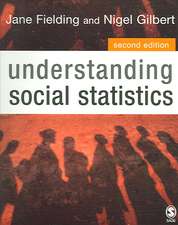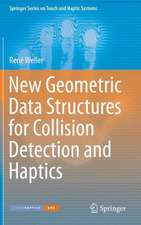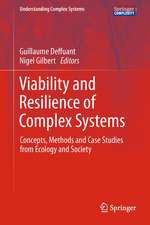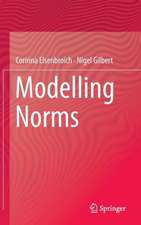Social Dimensions of Organised Crime: Modelling the Dynamics of Extortion Rackets: Computational Social Sciences
Editat de Corinna Elsenbroich, David Anzola, Nigel Gilberten Limba Engleză Paperback – 17 iul 2018
| Toate formatele și edițiile | Preț | Express |
|---|---|---|
| Paperback (1) | 643.63 lei 6-8 săpt. | |
| Springer International Publishing – 17 iul 2018 | 643.63 lei 6-8 săpt. | |
| Hardback (1) | 649.93 lei 6-8 săpt. | |
| Springer International Publishing – 22 dec 2016 | 649.93 lei 6-8 săpt. |
Din seria Computational Social Sciences
- 15%
 Preț: 649.39 lei
Preț: 649.39 lei - 18%
 Preț: 964.54 lei
Preț: 964.54 lei - 15%
 Preț: 643.34 lei
Preț: 643.34 lei - 15%
 Preț: 640.88 lei
Preț: 640.88 lei - 20%
 Preț: 338.16 lei
Preț: 338.16 lei -
 Preț: 390.63 lei
Preț: 390.63 lei -
 Preț: 395.47 lei
Preț: 395.47 lei - 20%
 Preț: 662.11 lei
Preț: 662.11 lei - 20%
 Preț: 618.05 lei
Preț: 618.05 lei - 20%
 Preț: 760.97 lei
Preț: 760.97 lei - 20%
 Preț: 628.79 lei
Preț: 628.79 lei - 20%
 Preț: 649.93 lei
Preț: 649.93 lei - 20%
 Preț: 761.44 lei
Preț: 761.44 lei - 15%
 Preț: 643.48 lei
Preț: 643.48 lei - 18%
 Preț: 1117.34 lei
Preț: 1117.34 lei - 20%
 Preț: 1169.47 lei
Preț: 1169.47 lei -
 Preț: 432.12 lei
Preț: 432.12 lei -
 Preț: 393.13 lei
Preț: 393.13 lei - 18%
 Preț: 887.38 lei
Preț: 887.38 lei -
 Preț: 383.93 lei
Preț: 383.93 lei - 20%
 Preț: 241.67 lei
Preț: 241.67 lei - 15%
 Preț: 523.07 lei
Preț: 523.07 lei -
 Preț: 428.07 lei
Preț: 428.07 lei - 15%
 Preț: 693.06 lei
Preț: 693.06 lei -
 Preț: 487.75 lei
Preț: 487.75 lei - 20%
 Preț: 1166.19 lei
Preț: 1166.19 lei - 15%
 Preț: 696.02 lei
Preț: 696.02 lei - 20%
 Preț: 1156.62 lei
Preț: 1156.62 lei - 25%
 Preț: 470.31 lei
Preț: 470.31 lei
Preț: 643.63 lei
Preț vechi: 804.54 lei
-20% Nou
Puncte Express: 965
Preț estimativ în valută:
123.16€ • 128.34$ • 101.97£
123.16€ • 128.34$ • 101.97£
Carte tipărită la comandă
Livrare economică 03-17 aprilie
Preluare comenzi: 021 569.72.76
Specificații
ISBN-13: 9783319832296
ISBN-10: 3319832298
Ilustrații: X, 250 p. 60 illus., 53 illus. in color.
Dimensiuni: 155 x 235 mm
Greutate: 0.37 kg
Ediția:Softcover reprint of the original 1st ed. 2016
Editura: Springer International Publishing
Colecția Springer
Seria Computational Social Sciences
Locul publicării:Cham, Switzerland
ISBN-10: 3319832298
Ilustrații: X, 250 p. 60 illus., 53 illus. in color.
Dimensiuni: 155 x 235 mm
Greutate: 0.37 kg
Ediția:Softcover reprint of the original 1st ed. 2016
Editura: Springer International Publishing
Colecția Springer
Seria Computational Social Sciences
Locul publicării:Cham, Switzerland
Cuprins
Introduction.- Part I: Extortion Rackets as a Global Phenomenon.- National Mafia Type Organisations: Local Threat, Global Reach.- Basic Dynamics of Extortion Racketeering.- Part II: Society and the State.- Social Norms and Extortion Rackets.- Legal Norms against the Italian Mafia.- Part III: Extortion Rackets in Society.- Mafia Methods, Extortion Dynamics and Social Responses.- An Agent-Based Model of Extortion Racketeering.- Extortion Rackets: An event-oriented model of interventions.- Survey Data and Computational Qualitative Analysis.- Part IV: The Criminal Organisation.- Text Data and Computational Qualitative Analysis.- A simulation model of intra-organisational conflict regulation in the crime world.- Part V: Synthesis and Conclusion.- Calibration and Validation.- Conclusion.
Recenzii
“This work is one of many in the unfolding field of computational social science that not only analyzes data, but additionally runs simulations and develops databased models to understand current and future environments. As such it is a valuable study not only for the specific subject matter, but also for the potentially broad application of the techniques employed. … This research is a noteworthy contribution to the emerging multidisciplinary and computationally aided social sciences.” (Computing Reviews, October, 2017)
Textul de pe ultima copertă
This book presents a multi-disciplinary investigation into extortion rackets with a particular focus on the structures of criminal organisations and their collapse, societal processes in which extortion rackets strive and fail and the impacts of bottom-up and top-down ways of fighting extortion racketeering. Through integrating a range of disciplines and methods the book provides an extensive case study of empirically based computational social science. It is based on a wealth of qualitative data regarding multiple extortion rackets, such as the Sicilian Mafia, an international money laundering organisation and a predatory extortion case in Germany. Computational methods are used for data analysis, to help in operationalising data for use in agent-based models and to explore structures and dynamics of extortion racketeering through simulations. In addition to textual data sources, stakeholders and experts are extensively involved, providing narratives for analysis and qualitative validation of models. The book presents a systematic application of computational social science methods to the substantive area of extortion racketeering. The reader will gain a deep understanding of extortion rackets, in particular their entrenchment in society and processes supporting and undermining extortion rackets. Also covered are computational social science methods, in particular computationally assisted text analysis and agent-based modelling, and the integration of empirical, theoretical and computational social science.
Caracteristici
Analyses extortion rackets as a global and dynamic phenomenon Applies computational social science methodologies to the substantive area of extortion rackets Integrates data driven and participatory/stakeholder driven modelling on the substantive area Serves as a case study of empirically focused agent based modeling Includes supplementary material: sn.pub/extras


















